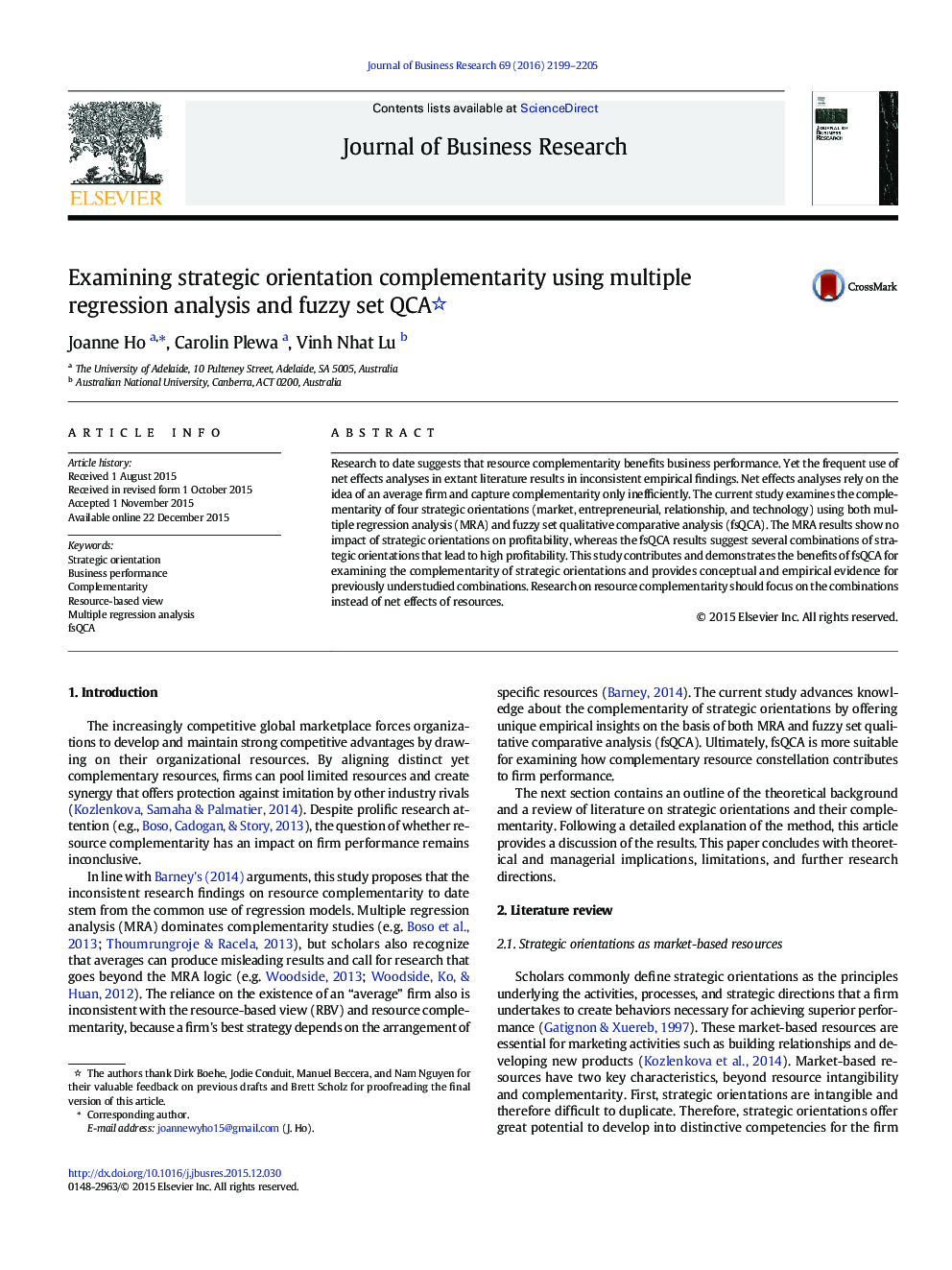| Article ID | Journal | Published Year | Pages | File Type |
|---|---|---|---|---|
| 1016952 | Journal of Business Research | 2016 | 7 Pages |
Research to date suggests that resource complementarity benefits business performance. Yet the frequent use of net effects analyses in extant literature results in inconsistent empirical findings. Net effects analyses rely on the idea of an average firm and capture complementarity only inefficiently. The current study examines the complementarity of four strategic orientations (market, entrepreneurial, relationship, and technology) using both multiple regression analysis (MRA) and fuzzy set qualitative comparative analysis (fsQCA). The MRA results show no impact of strategic orientations on profitability, whereas the fsQCA results suggest several combinations of strategic orientations that lead to high profitability. This study contributes and demonstrates the benefits of fsQCA for examining the complementarity of strategic orientations and provides conceptual and empirical evidence for previously understudied combinations. Research on resource complementarity should focus on the combinations instead of net effects of resources.
